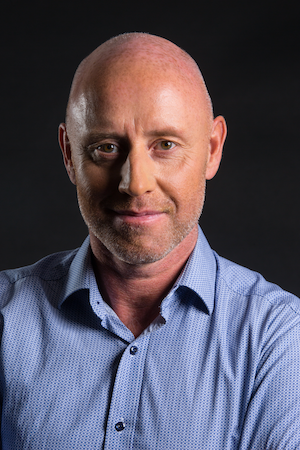
Professor Mikael Samuelsson has been involved in award winning research, consultancy work and training of entrepreneurs since 1998. His research is used in both education and governmental programs for entrepreneurs. He is involved in international and national development programs on a global level. He has researched over 1000 new venture projects from birth and over a period of fifteen years. He has been part of the development processes for Swedish Government programs such as Verksamt.se. He has developed and managed on-line, hybrid and on campus master programs on international business, entrepreneurship and innovation. He is the founder of three business incubators and has extensive experience in technology transfer and in tech start-ups, as founder, CEO and investor.
Prof Samuelsson teaches Entrepreneurship at the UCT GSB, which forms part of the core curriculum for the GSB’s MBA programme, as well as an MBA elective - Venture Exploitation. Some of his award-winning cases and research papers include:
2020 winner of the 12th Emerald and Association of African Business Schools Case Writing Competition: “Medical cannabis: Afriplex’s diversification and integration strategy in an undefined market” (with Stefan Christiaan Nel and Sarah Boyd)
2019 winner of The 11th Emerald and Association of African Business Schools Case Writing Competition: “Triggerfish Animation Studios: The challenges of financing digital entertainment” (with Craig Lowman and Geoff Bick)
2018 Best paper from North and South America, International Council for Small Business annual conference: “The moderating effect of planning by entrepreneurs and intrapreneurs” (with Benson Honig)
2005 Awarded NFIB Best Paper Award on General Topic at the Babson Entrepreneurship Research Conference: “Which Schumpeter Is Right? Comparing Nascent Exploitation Processes a la Schumpeter Mark I And Schumpeter Mark II”
2004 Awarded Allied Academics best dissertation award in entrepreneurship
2001 Awarded NFIB Best Paper Award on General Topic at the Babson Entrepreneurship Research Conference: "Modelling the Nascent Venture Opportunity Exploitation Process Across Time"
CWC: Tell us more about your field of research and what drew you to it?
MS: My research centres around sustainable economic development through entrepreneurial action. The underlying thesis is that entrepreneurial action creates innovation and imitation to redistribute resources and give better solutions to some of our major challenges. I have always been curious about entrepreneurship and business, and when I got the opportunity to study it during my PhD I was just hooked. The continuous development of this fairly young research area is also important and fits my personality well.
CWC: What current trends, specific to Africa, in terms of entrepreneurship and venture exploitation have you noticed?
MS: There are some commonalities across Africa, but we need to remember that Africa consists of 54 countries with diverse situations. One consistent trend is the increase in funding to startups in Africa. Albeit low levels compared to the global north. There is also a bit of backlash in that since several large investments have closed down recently.
CWC: What is the hottest topic in entrepreneurship research at the moment that you are reading/writing about?
MS: Entrepreneurship is at a stage where we need to take count of what we are doing and challenge ourselves. After 30 years of research, the survival rates, job creation, and revenue generation from start-ups have not improved. We need to challenge our research to be of practical value, and not only to academia but also for practice.
CWC: Which case had the biggest impact on you as a business student?
MS: I participated in a Harvard case colloquium as a faculty member in early 2000 and was amazed by the structural approach of the participant-centred learning idea. We did eight cases each day for two weeks and it was tough. I was a business student a long time ago and had not really been exposed to cases.
CWC: What is your most memorable case teaching experience?
MS: It’s a recent experience when we introduced a new case to a small MBA class. It was a live case about a social enterprise called Umoya, and one of the founders was in the session. An interesting challenge was presented of a scale-up trying to evolve from a non-profit to something else. The energy in the room, the inspiration from the founder and the learning was amazing.
CWC: What is your favourite teaching case at the moment, and why?
MS: My favourite is Afriplex, a small South African pharmaceutical company exploring opportunities to produce medical cannabis products. It deals with strategic decision making and includes an extensive amount of company information as well as information about the context. It allows the student to get a comprehensive idea about the complexity of making strategic decisions in an entrepreneurial setting. It is also a local case from Cape Town which increases students’ interest in the actual case.
CWC: How do you prefer to use teaching cases or stories in the classroom?
MS: I normally use cases as part of a broader pedagogical idea where the case is facilitating decision-making learning. It allows me to provide situations that are based on real events and it gives the students an opportunity to apply and develop capacity and knowledge in entrepreneurial decision making.
Read the cases
Check out these other cases by Prof Samuelsson, available from Emerald:
“Devil’s Peak: The craft conundrum” by Gareth Harrington & Professor Mikael Samuelsson
“Grow or successfully disengage? Navigating the revolution of South African tower companies” by Sebastian Prim & Professor Mikael Samuelsson
“MWEB: Growth strategy option for an internet service provider” by Rihana Hoodain, Professor Geoff Bick, Professor Mikael Samuelsson















